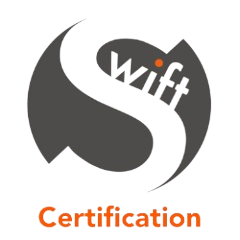In today’s highly competitive business environment, small and medium-sized enterprises (SMEs) face numerous challenges in maintaining their operations, ensuring customer satisfaction, managing risks, and safeguarding their data. To overcome these challenges and thrive in the market, many SMEs are turning to international standards such as ISO 9001, ISO 14001, ISO 45001, and ISO 27001. These standards provide structured frameworks that help organisations improve quality management, environmental responsibility, occupational health and safety, and information security.
Understanding the ISO Standards
Before delving into why these standards are beneficial for SMEs, it’s important to understand what each of these ISO standards entails:
- ISO 9001 (Quality Management System): This standard focuses on quality management principles, helping businesses ensure that their products and services meet customer and regulatory requirements. It emphasises continuous improvement, customer satisfaction, and the involvement of top management.
- ISO 14001 (Environmental Management System): ISO 14001 provides a framework for organisations to manage their environmental responsibilities. It helps businesses reduce their environmental impact, comply with regulations, and improve their overall environmental performance.
- ISO 45001 (Occupational Health and Safety Management System): This standard aims to prevent work-related injuries, illnesses, and fatalities by providing a framework for identifying and managing occupational health and safety risks. It focuses on creating a safe working environment for employees.
- ISO 27001 (Information Security Management System): ISO 27001 sets out the criteria for establishing, implementing, maintaining, and continuously improving an information security management system (ISMS). It helps organisations protect their information assets and manage sensitive data securely.
The Importance of ISO Standards for SMEs
While these standards are often associated with large corporations, they are equally relevant and beneficial for SMEs. Implementing these standards can bring a range of advantages, from operational efficiency to enhanced credibility. Here’s why these ISO standards are good for SMEs:
1. Enhanced Customer Confidence and Satisfaction
One of the primary reasons SMEs should consider adopting ISO standards is the boost in customer confidence and satisfaction.
- ISO 9001 helps SMEs consistently deliver high-quality products or services that meet customer expectations. Customers are more likely to trust a company that follows recognised quality management principles, leading to increased customer satisfaction and loyalty.
- ISO 27001 ensures that sensitive customer data is handled securely, which is crucial in building trust, especially in sectors where data protection is a top priority. By demonstrating that they have robust information security practices in place, SMEs can reassure their customers that their data is safe.
2. Improved Operational Efficiency
ISO standards encourage SMEs to adopt systematic processes and best practices, leading to greater operational efficiency.
- ISO 9001 promotes process optimisation and waste reduction, which can result in cost savings. It helps SMEs streamline their operations, reduce errors, and improve product consistency, all of which contribute to better overall performance.
- ISO 14001 encourages resource efficiency by helping SMEs identify areas where they can reduce waste, energy consumption, and raw material usage. This not only lowers operational costs but also minimises the environmental impact of the business.
- ISO 45001 contributes to operational efficiency by creating safer workplaces. A safe working environment reduces the likelihood of accidents and associated downtime, leading to smoother operations and higher productivity.
3. Regulatory Compliance and Risk Management
SMEs often struggle with keeping up with the multitude of regulations that apply to their industry. ISO standards help in maintaining compliance and managing risks effectively.
- ISO 9001 ensures that SMEs meet relevant regulatory and statutory requirements concerning quality. This reduces the risk of non-compliance and potential legal issues.
- ISO 14001 assists SMEs in complying with environmental regulations. It provides a framework for identifying legal requirements and implementing processes to meet them, thereby reducing the risk of fines or legal actions.
- ISO 45001 helps SMEs identify and control occupational health and safety risks, ensuring compliance with health and safety regulations. This not only protects employees but also mitigates the risk of legal liabilities.
- ISO 27001 helps SMEs identify and address information security risks, ensuring compliance with data protection regulations such as GDPR. This is particularly important in preventing data breaches and avoiding the hefty fines associated with non-compliance.
4. Competitive Advantage and Market Access
In today’s globalised market, being certified to ISO standards can give SMEs a competitive edge.
- ISO 9001 certification is often a prerequisite for doing business with certain clients or entering new markets. Many large corporations and government agencies require their suppliers to be ISO 9001 certified, making it essential for SMEs that want to expand their customer base.
- ISO 14001 and ISO 45001 certifications can enhance an SME’s reputation, especially with clients who prioritise environmental responsibility and worker safety. These certifications can also open doors to new markets where such standards are mandatory or highly valued.
- ISO 27001 certification is increasingly becoming a requirement for SMEs working with larger organisations, especially in sectors like finance, healthcare, and IT. Being ISO 27001 certified can differentiate an SME from its competitors by demonstrating its commitment to information security.
5. Improved Employee Morale and Safety
Employee satisfaction and safety are critical factors in the success of any business. ISO standards can have a positive impact on both.
- ISO 9001 involves employees in the process of continuous improvement, which can lead to higher morale and a sense of ownership over their work. When employees see that their contributions lead to tangible improvements, it fosters a positive work environment.
- ISO 45001 focuses specifically on occupational health and safety, ensuring that SMEs provide a safe working environment for their employees. A safer workplace reduces absenteeism, turnover, and the costs associated with workplace accidents, while also improving overall employee morale.
6. Sustainable Business Practices
Sustainability is increasingly important in today’s business environment, and ISO standards can help SMEs adopt sustainable practices.
- ISO 14001 provides a framework for reducing environmental impact, which is increasingly important as consumers, investors, and regulators demand more sustainable business practices. By implementing ISO 14001, SMEs can minimise waste, reduce energy consumption, and improve their overall environmental footprint.
- ISO 45001 also contributes to sustainability by ensuring that health and safety risks are managed effectively. This not only protects employees but also contributes to the long-term sustainability of the business by reducing the likelihood of accidents and associated costs.
- ISO 9001 indirectly supports sustainability by promoting efficient use of resources and reduction of waste through continuous improvement processes.
7. Structured Growth and Continuous Improvement
ISO standards provide SMEs with a structured framework for growth and continuous improvement.
- ISO 9001 encourages a culture of continuous improvement, where processes are regularly reviewed and optimised. This approach helps SMEs grow in a structured and sustainable manner, ensuring that quality is maintained even as the business expands.
- ISO 14001 and ISO 45001 also emphasise continuous improvement, particularly in environmental management and health and safety. By continually assessing and improving their practices, SMEs can adapt to changing regulations and market demands, ensuring long-term success.
- ISO 27001 helps SMEs stay ahead of evolving cybersecurity threats by encouraging continuous monitoring and improvement of information security practices. This is crucial for maintaining the trust of customers and partners in an increasingly digital world.
8. Cost Savings and Financial Performance
While there are initial costs associated with implementing ISO standards, the long-term financial benefits can be significant for SMEs.
- ISO 9001 can lead to cost savings by reducing errors, improving efficiency, and increasing customer satisfaction, which in turn can lead to higher sales and repeat business.
- ISO 14001 helps SMEs save money by reducing waste, energy consumption, and resource use. It can also help avoid costs associated with environmental fines and penalties.
- ISO 45001 can reduce costs related to workplace accidents, such as medical expenses, legal fees, and compensation claims. A safer workplace also means fewer disruptions to operations, which can positively impact the bottom line.
- ISO 27001 helps prevent the financial losses associated with data breaches, such as legal fines, reputational damage, and loss of business. By safeguarding sensitive information, SMEs can avoid the costly repercussions of cybersecurity incidents.
9. Building a Strong Reputation and Brand Image
ISO certifications are recognised globally and can significantly enhance an SME’s reputation.
- ISO 9001 certification signals to customers, partners, and stakeholders that the SME is committed to quality. This can enhance the business’s reputation and make it more attractive to potential clients and partners.
- ISO 14001 and ISO 45001 certifications demonstrate a commitment to environmental responsibility and employee well-being, respectively. These certifications can improve the SME’s brand image, particularly among consumers and businesses that prioritise sustainability and ethical practices.
- ISO 27001 certification builds trust by showing that the SME takes information security seriously. In an era where data breaches are increasingly common, this can be a major differentiator in the marketplace.
10. Attracting Investment and Partnerships
Investors and potential business partners often look for companies that are well-managed, compliant, and sustainable. ISO certifications can make SMEs more attractive to these stakeholders.
- ISO 9001 and ISO 14001 certifications can be particularly appealing to investors who are interested in companies with strong quality management and environmental responsibility. These certifications suggest that the SME is well-run and has the potential for sustainable growth.
- ISO 45001 can attract investors who are concerned with corporate social responsibility and the well-being of employees. A commitment to health and safety is often viewed as a sign of a responsible and forward-thinking business.
- ISO 27001 can be a key factor in securing partnerships with larger organisations, especially those in industries where data security is paramount. By demonstrating that they have robust information security practices, SMEs can attract more business opportunities and partnerships.
Conclusion: The Strategic Value of ISO Standards for SMEs
In summary, implementing ISO 9001, ISO 14001, ISO 45001, and ISO 27001 offers a wide range of benefits for SMEs. These standards not only help SMEs improve their operational efficiency, comply with regulations, and manage risks, but they also enhance customer satisfaction, employee morale, and overall business sustainability. Moreover, ISO certifications provide a competitive advantage in the marketplace, helping SMEs attract new customers, partners, and investors.
While the initial investment in implementing these standards may seem daunting, the long-term benefits far outweigh the costs. By adopting ISO standards, SMEs can position themselves for growth, success, and resilience in an increasingly competitive and regulated business environment.
Ultimately, ISO standards provide SMEs with the tools and frameworks they need to thrive in today’s complex world, making them a wise investment for any small or medium-sised enterprise looking to secure its future.



